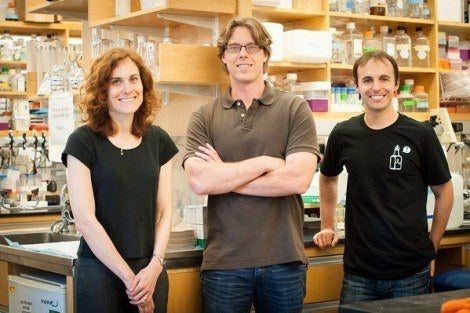July 29, 2013 — Harvard School of Public Health (HSPH) researchers have discovered that chemicals generated by bacteria in the colon help important immune cells known as Tregs in the colon grow and function well. The researchers also found that these bacterial metabolites reduced colitis in mice with inflammatory bowel disease (IBD), a chronic disease of the intestines that afflicts over two million people worldwide.
“Increasingly, scientists, physicians, and the public are recognizing that the gut microbiota, the microbes that live within our intestines, shape our health and wellbeing in innumerable ways. We’ve identified that an abundantly produced microbial metabolite shapes the immune response,” said [[Wendy Garrett]], senior author and assistant professor of immunology and infectious diseases at HSPH.
The study was published online July 4, 2013 and will appear in the August 2, 2013 print edition of the journal Science.
Researchers have long suspected a link between gut microbes and immune-related diseases, such as obesity, allergies, IBD, and colon cancer. Identifying the specific link, however, has been difficult.
Garrett and lead author Patrick Smith, who was a postdoctoral fellow at HSPH at the time of the study, and colleagues focused on the role of Tregs, which are regulatory T cells in the large intestine. Tregs help people live peacefully with their gut bacteria and enable a wide range of foods to be digested.
“Until recently, it has not been well understood what microbial factors regulate Tregs in the colon,” Garrett said.
The metabolites identified by the researchers are short chain fatty acids (SCFAs) generated when bacteria in the colon break down fiber in food. There are several kinds of short chain fatty acids. For example, acetic acid is a short chain fatty acid found in vinegar. To find out if SCFAs could boost Treg activity and lower inflammation, acetic acid, among other short chain fatty acids, was added to the mice’s drinking water. Afterwards, elevated levels of Tregs with enhanced function were detected in the mice’s colons and mice that ordinarily would develop colitis did not.
Garrett hopes that the findings will translate to humans. Short chain fatty acids have been used to successfully treat patients both with pouchitis and diversion colitis, complications that can occur in patients with inflammatory bowel disease. “Our results may shed light on why these treatments work for some patients and fuel research to improve upon short chain fatty acids as a precision treatment to help even more inflammatory bowel disease patients,” Garrett said. It’s also possible that eating the right kinds and amounts of dietary fibers might be an important part of promoting intestinal health, she added.
Other HSPH authors include Michael Howitt, postdoctoral fellow in the Garrett Lab, and Monia Michaud and Carey Gallini, research assistants. Smith now is at the University of Cologne in Germany.
Learn more
Bacteria identified that may lead to inflammatory bowel disease in genetically susceptible individuals (HSPH press release)
Bacteria Without Borders (Harvard Public Health: Winter 2008)
